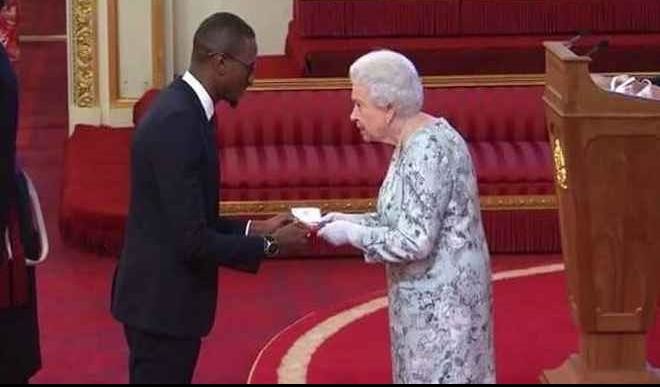Day I met Queen Elizabeth II – Yammama
Daily Trust: You are one of those who received the 2017 Queen’s Young Leaders award, presented by Queen Elizabeth II. What is the award all about? Nasir Yammama: The award is to celebrate young people using their skills to better the lives of people across the Commonwealth and it was facilitated by the Queen’s Diamond […]


Daily Trust: You are one of those who received the 2017 Queen’s Young Leaders award, presented by Queen Elizabeth II. What is the award all about?
Nasir Yammama: The award is to celebrate young people using their skills to better the lives of people across the Commonwealth and it was facilitated by the Queen’s Diamond Trust, Comic Relief, and the Buckingham Palace. It was established three years ago when Her Majesty celebrated her jubilee, and it has connected people from different fields, ranging from social sciences, health, finance and others. I was selected because of my work in agricultural technology, especially for rural farmers.
DT: Can you describe the experience meeting the Queen of England?
Yammama: It was surreal. We had the whole Buckingham Palace experience, meeting people within massive, golden halls and red carpets all over. We sat in the hall where she met with people and we were called in. There were many people with cameras, and she stretched out her hand, gave me the award and even exchanged a few words with me. She asked me about my work, and I told her it was in Agriculture and Technology. She remarked that it must be difficult, and I said yes but that we are pushing. She wished me the best and asked me to have a good time at dinner, which Prince Harry hosted, and moved on.
That was not all, as we were there for ten days. We had a residency programme at Cambridge University where we did some courses on leading change, how to network, build sustainable social enterprises, how to manage change, and even fun activities like punting.
We came back to London and met some really interesting people. We were at No 10 Downing Street, where we were welcomed by Mr. John Major, a former Prime Minister of the UK and current Chair of Queen Elizabeth Diamond Jubilee Foundation. We were all there as young leaders.
We proceeded to Facebook, Google, and even smaller organisations, like radio stations that are bringing positive change in the UK. It was a fantastic experience.
DT: Your tech innovation, Verdant, helps farmers, particularly rural ones. How widely would you say it is being used today?
Yammama: We are currently deployed in Plateau and Benue states only. And we have only being running for a few months, as we’ve been doing a pilot programme for a while. But since February, we’ve had many registrations, of about 10,000 users and I like to think it will gain momentum as more people know about it, and more states adopt it.
We are doing it like a value chain approach, where we choose a state and a particular crop. For instance, we want to do ginger in Kaduna, sesame in Sokoto, rice in Kebbi, and so on.
Verdant is also a company that seeks to support rural farmers with access to not only information but also access to market to finance, farm inputs, agricultural knowledge that they need to produce better and faster, and to save cost. I think we are the only company in the world that has connected all the stakeholders of the agricultural sector under one platform and are able to put them through to-end users, who are the farmers without necessarily being literate or tech-savvy. We get them to access all of this using their mobile phones.
DT: Are there any success stories of farmers who have benefited from Verdant?
Yammama: We’ve been working with potato farmers in Plateau and the chairman of the Potato Farmers Association had a really fantastic interview with Radio France International. It was mind-blowing to me, as I never had such a conversation with the farmers about the impact of what we provided for them. He mentioned how prior to what we had for them they had no means of getting accurate information in a timely manner. Hearing that angle felt really uplifting.
Imagine knowing how much potatoes will cost and preparing to sell at that price before the time, all without going to the market. Imagine knowing the possibility of rain in the next three days so as to prepare to spray your potatoes. These are testimonies they have given.
They have access to agrochemicals which they otherwise have to go out for. But using the mobile phone, which they already used to talk to their loved ones, they can gain more by having access to vital info via the app.
We plan to also give them access to finance by collaborating with financial institutions. Even though that has not started, lots of farmers are excited about it. We hope to roll it out soon.
DT: You’re also a farmer. What’s the update on that front?
Yammama: My last escapade in the field was largely experimental, to try to be in the shoes of the farmers, work with them, know how to make things work for them. Since then I have learnt lots of things. I do plan to go back to the farm again, but not this year.
DT: What is your favourite aspect of being a farmer?
Yammama: Probably, the most powerful people in the world are famers. This is because of the responsibility that comes with growing food, rearing animals. You are in charge, contributing actively. That’s my favourite part, the feeling of great responsibility which comes with great power, as someone once said.
